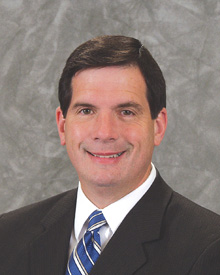 Thom Rainer, president and CEO of LifeWay Christian Resources, recently wrote about the role of executive pastor. The position itself is a relatively new construct, arriving in the latter half of the twentieth century. Initially attractive primarily to megachurches, the value of this position is now seen by congregations significantly smaller in size. This observation is one of five trends Rainer highlights:
Thom Rainer, president and CEO of LifeWay Christian Resources, recently wrote about the role of executive pastor. The position itself is a relatively new construct, arriving in the latter half of the twentieth century. Initially attractive primarily to megachurches, the value of this position is now seen by congregations significantly smaller in size. This observation is one of five trends Rainer highlights:
- More executive pastors in smaller churches
- More executive pastors have staff responsibilities
- A growing number of executive pastors are also teaching pastors.
- More executive pastors have oversight of multiple venues
- More executive pastors have a combination of business training and theological training
So What?
Large congregations today are typically incredibly complex organizations with multi-million dollar budgets. In many cases the congregation retains oversight for or shepherds a number of ministry groups that exist as independent not-f0r-profit entities, including schools and outreach ministries. In this environment, senior leadership by an executive pastor with experience and training in business is invaluable.
- Does your congregation have an executive pastor? If so, what are the benefits of such? If not, how much larger would your congregation need to grow (in budget, in number of affiliated ministries, in staff, etc.) before adding an executive pastor would appear wise?
- As larger congregations continue to experience greater growth and as larger percentages of Protestants affiliated with these larger congregations, do you expect that the number of executive pastors will increase significantly over the next few decades? Why or why not?
- What are the implications of this trend for small congregations that employ only one pastor (full-time or part-time)? How can these parishes experience the benefits of the executive pastor role without adding staff?